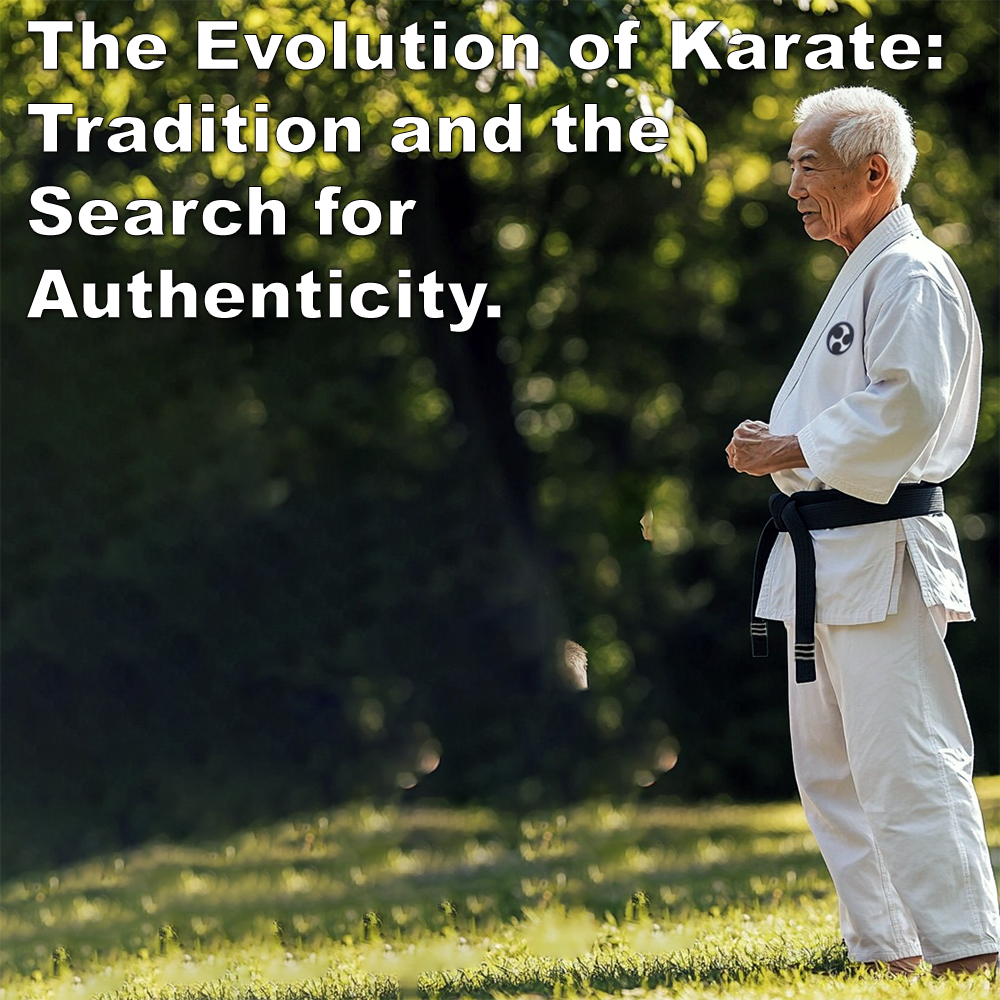
(Approx 2 minute 45 second read)
Recently, I received a message about an article I had written, which was about the karate being taught after WWII and propagated across the US and to the rest of the world.
.
The message said that their karate was immune to superficiality because they had regular visits back to Okinawa and they had invited their Okinawan instructor to the US on several occasions, ensuring good quality teaching and training.
.
While there are many people who may have learned their karate in depth, we only have to look around to see that the majority of the karate being practiced today, is the modern adaptation from the early and middle part of the 20th century.
.
There’s nothing wrong with this, if you are happy with your karate, its heritage, and its lineage. However, it’s important to acknowledge that the karate you practice was not designed for real-world self-defense.
.
After their initial exposure, many people search for answers in their karate because what they are being offered eventually turns out to be something different from what they thought it was. If you’re looking for genuine self-defense, then modern karate – is not it. Of course, there are elements within it that can be applied effectively, as is the case with any fighting system.
.
I regularly have interactions with people who refer to their style as genuine. They insist their style or school is authentic, and that it follows a lineage back to the creator of that style. It’s wonderful to have this link to the past, and I count myself among those who enjoy this line in history.
.
Don’t get me wrong, there are many high-ranking karate teachers, instructors, and masters who are exceptional in their knowledge and their teaching. But realistically, how much of it is true to karate’s beginnings?
.
Handed down through oral tradition, and usually in secrecy, much of karate’s original history and unique practices have been lost. The modern interpretation of karate, in its many variations, has evolved into something quite different from what its original pioneers had in mind when it was created.
.
In truth, it is this modern karate, post-WWII karate, that has been passed down the generations. You only have to acknowledge today’s researchers to understand this.
.
So when I receive messages from people who believe they’re being taught the ‘best’ karate because they have an instructor from Okinawa – many of us do – unfortunately, it doesn’t mean it is the ‘original’ creation.
.
So where does this leave the modern practitioner? If most karate being practiced today is a far cry from the original, does that mean it’s without value? Not at all. What we need to recognize is that all arts evolve, and it’s this evolution that allows the martial arts to remain relevant. But for karate to be effective in the real world, especially for self-defense, we must train with practical application in mind, not simply repeat movements passed down from a sanitized or sport-oriented version of the art.
.
It’s not enough to blindly follow tradition or assume that having a connection to Okinawa automatically ensures authenticity. Authenticity, in my view, comes from truly understanding and adapting the core principles of karate to fit the realities of today’s world. It’s about understanding the intention behind the movements and ensuring they’re being practiced with context in mind.
.
Ultimately, modern karate – while not a mirror of its origins – can still be meaningful and valuable. But we must ask questions and dig deeper into the applications of the techniques we’ve been taught. Otherwise, we risk becoming just another practitioner in the crowd, thinking we’re learning something more genuine than it really is.
.
In the end, it’s not about how closely you can replicate what was done many decades ago; it’s about how well you can take those lessons and make them relevant for today.
.
.
Written by Adam Carter – Shuri Dojo.
